“How To Reduce Traffic Noise In My Backyard?” – A question many people that live near a highway or freeway have asked themselves on many an occasion. Your backyard is a space you are supposed to be able to enjoy. A space where you can relax, spend time with friends, cultivate plants, play sports, sunbathe or simply sit and have your morning coffee. But what if all that is ruined by the traffic noise from the road right outside your house?
Car horns, grumpy commuters and loud trucks can all disturb the peace of your garden, but fortunately, there is something you can do about it. While you can’t get rid of this noise completely, there are some methods you can try that will help to reduce the amount of sound heard. Keep reading on to find out more.
Why Should I Soundproof My Backyard?
You might be wondering why you would want to go to the trouble of soundproofing your backyard. Well, if the noise from nearby traffic doesn’t bother you, then maybe you don’t need to. However, for many people, traffic noise can disrupt their day to day life and can generally be pretty annoying to live with.
If you live in an urban area, you might be more exposed to noise pollution. That being said, with technology advancing and life becoming busier everywhere, even those in rural areas can be more exposed to noise nowadays. Aside from being disruptive, this noise can also have adverse effects on your health.
Not only does a noisy space limit the chance you have to relax and reduce stress, but being exposed to loud sounds for long periods of time can actually affect your hearing, too. Hearing loss may be more common if you live right next to a very busy road or a construction site.
Types Of Noises You Might Hear In Your Backyard
There are many different types of noises that you might hear in your backyard and, unless you live in the middle of nowhere with no neighbors, you’ll probably be exposed to some on a regular basis.
Of course, if you live by a road, you are going to hear traffic noise. However, if you live by a very busy road or freeway, you might also hear car honking, sirens from emergency vehicles and screeching of tires. If an airport is nearby, you’ll certainly hear sounds of planes flying overhead.
In built-up urban areas you might also hear noises from nearby businesses or construction sites, or even from the local park from kids playing. If your neighbors have kids, you might also hear sounds of them running around or shouting in the yard next door.
Neighbors can often be a big generator of noise. If it’s not their kids, it might be their pets, particularly dogs barking. You might also find your neighbors mowing the lawn or trimming the edges of their grass, all of which can make a loud, disruptive noise.
Noise Reduction Strategies
There are two main noise reduction strategies when it comes to soundproofing an area like a backyard from a source like traffic. One is sound deflection, and the other is sound attenuation.
Deflection
Noise deflection is one of the most effective methods when it comes to blocking road noise. As the name suggests, it involves creating something that the sound of noisy traffic bounces off and deflects back into the traffic, so it never actually reaches your garden.
Deflection can be difficult to achieve, because the solution (the thing that deflects the sound) needs to be as close to the noise as possible. So, unless your backyard borders the freeway, it can be hard to use sound deflection to the best of its ability.
Attenuation
On the other hand, noise attenuation is slightly easier to achieve and involves a sound barrier absorbing the sound rather than deflecting it. While these are less effective that sound deflecting barriers, they are usually cheaper.
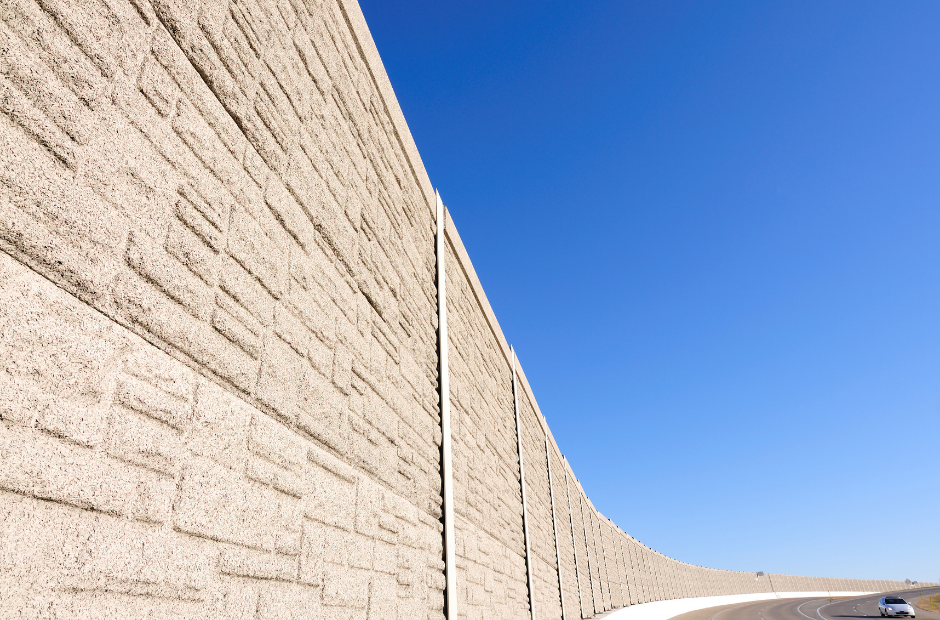
Factors To Look For In Traffic Noise Reduction Barriers
To ensure you get the right noise reduction barrier for your backyard that works most effectively, there are a few things you should look out for. Noise barriers come in all shapes and sizes, so it’s a good idea to know what you should aim for.
Height
To effectively block noise, the height of the barrier needs to be higher than the source of the noise. We recommend you get a sound barrier that is at least 2 meters tall, if not more. This will not only be higher than the traffic, but will also be taller than you so any noise that does seep over will go over your head. However, you should also take into consideration height and width restrictions your local council has mandated.
Thickness
A thick barrier is much better than a thin barrier. This is because the thicker the surface is, the harder it is for the sound waves to get through. If your sound barrier is not dense enough, it will allow sound vibrations to travel through it much more easily, and you won’t get so much protection from the noise. Therefore, think about the density of the barrier you choose.
Placement
Where you place your sound barrier is very important. Installing your barrier closer to the road will allow the best chance of deflecting noise, but this can be difficult — you’re trying to soundproof your yard, so you’ll have to put the barrier on your property! Therefore, you should try to place your sound barrier as close as you can to the source of the noise.
Coverage
A garden fence used to block sound isn’t going to be much use if it has a large hole at the bottom or there is a gap in it. Make sure the barrier covers the ground evenly and there are no holes where the sound could seep through, especially at the corners.
Porosity
You’ll want a firm or non-porous material for your sound barrier to prevent sound from getting through. Going hand in hand with coverage, you’ll also want to make sure there are no gaps or cracks in your barrier or fence where noise could leak through.
Methods Of Soundproofing Your Backyard And Reducing Traffic Noise
As we mentioned above, there is no way to completely silence traffic noise. Unfortunately, this is unattainable, particularly as traffic is everywhere, and your yard isn’t a top-to-toe enclosed space with no gaps, cracks or holes. If it was, you wouldn’t be able to enjoy the best part about your yard — that it is outside!
However, there are some methods that can be used to reduce the amount of noise that is heard from your garden. Some of these are deflection methods, and others are attenuation methods.
Build A Brick Wall
Building a brick wall is one of the best ways to help soundproof your back yard from traffic noise. A brick wall will deflect noise and can reduce noise by up to 50% because of how thick and dense it is. You can also build them as high as you want to, and there are no gaps that can let sound through.
The downside to a brick fence is how expensive it will be to erect. Not only will you have to pay for the materials, but you’ll also have to pay someone to come and build it for you. There is also the trouble of getting permission to build the wall on your property, which you may need to obtain from the local authorities.
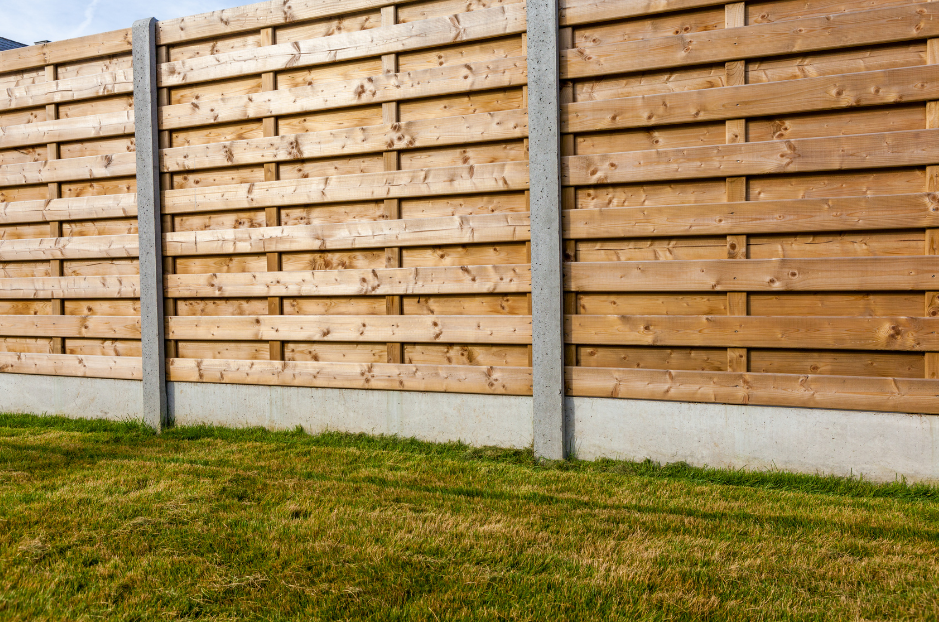
Install A Wood Fence
Installing a brick wall can be quite unattainable if you don’t have the money or the resources. Another good option is to install a wooden fence — this is both cheaper and easier to put up in your garden. The material is thinner, but still offers good protection against low-level noises.
Most fences are six feet in height, but the higher you build it, the better it will be at protecting against noise. However, you may need to check with the local authorities if you want to build one higher than eight feet.
You should be able to buy the wood for a wooden fence at your local hardware store, and you can even buy fence panels which will make your job a lot easier. When building, make sure the fence goes all the way to the ground. This will prevent sound from seeping in under it through any gaps.
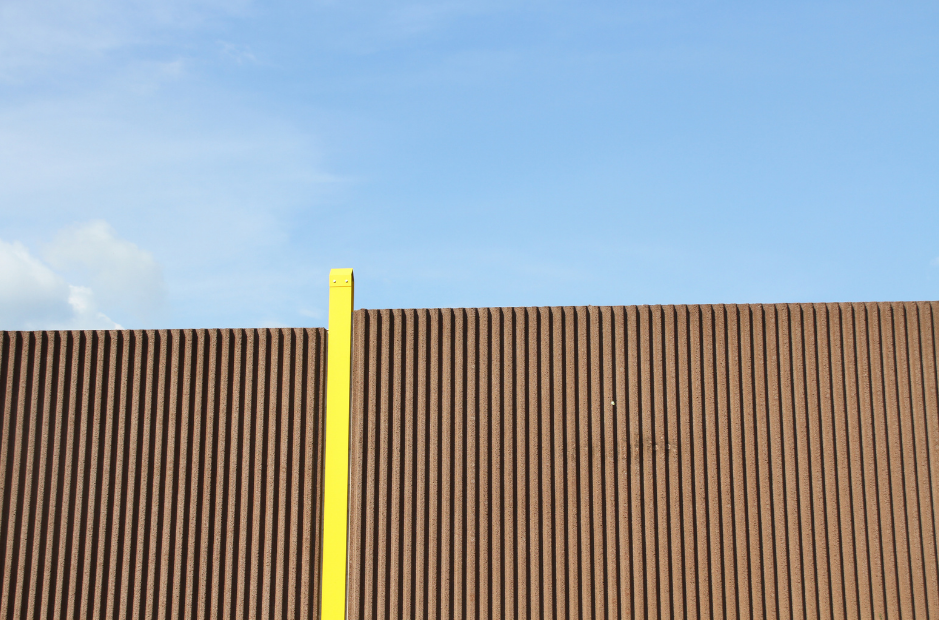
Install A Noise-Reducing Fence
There are fences out there that are specifically designed to be noise-reducing. They are usually made from layered wood or composite and are very dense. These fences are cheaper and quicker to build than a brick wall, and can still reduce noise by up to 50%. They’re also quite stylish and look good in many gardens. However, they are significantly more expensive than a traditional wooden fence.
You can either buy a soundproof fence or make one yourself. You can usually DIY your own acoustic fence by adding materials to an existing fence. For example, you could add Mass Loaded Vinyl (MLV), a heavy polymer that is very dense and often used for soundproofing, to a wooden fence to make it even more noise reducing.
Install Metallic Panels
Metallic panels can be great at reduce airborne noises, such as the sounds of your neighbors talking or other backyard noise. However, they are not so good at reducing car noises. This is because the metal can vibrate as cars drive past and actually amplify road noise levels.
To combat this, we recommend buying very thick metal panels if you decide to go down this route. However, this can be expensive.
Grow Hedges
A thick hedge can do a great job at muffling the sounds from the road, particularly if the end of your yard backs onto a road. Hedges work by absorbing the sound through their leaves, and are usually quite thick and tightly packed.
Not only do hedges help reduce noise, but they also look great in a garden and are a much more natural-looking solution to a wooden or brick fence. The downside to a hedge is that it can take a long time to grow.
We recommend you pair a hedge with a solid fence for around five years, as this is how long it takes for a hedge to properly grow. Once the hedge is established, you can then remove the solid fence and just use the hedge for sound-blocking. It sounds a long time, but it can be really worth it.
Create A Berm Barrier
Creating a berm barrier is not a solution everyone can resort to, but if you have the space, it can be really effective. A berm is a hill made of dirt that acts as a barrier between two areas. They are man-made and are a natural looking solution to excess nouse.
However, a berm requires a lot of dirt to make, and you also need to have the space to create one. If you do have the space, it is recommended you use a berm in combination with another noise reducing barrier, such as a fence.
Install A Shed
A shed isn’t exactly a barrier that you can use all the way around the perimeter of your backyard, but it can be great at deflecting sound from a particular area. For example, if there is a gap in your fence or property perimeter, placing a shed there will deflect the sound from this area. You could also place a shed near to openings of alleys or streets to help prevent the sound from getting into your space. What’s more, you can also use the shed for garden storage!
Backyard Soundproofing Alternatives
If one of the above sound barriers isn’t going to work for your space, there are a couple of alternative methods you can try. They might not do such a good job as a barrier, but they can still be very effective.
Alter Landscaping
Noise-reduction landscaping can be a great way to reduce sound that you hear in your backyard without having to build or construct a barrier. To alter your landscaping to reduce noise, you’ll want to make sure any trees or shrubs you have are very tall and dense, so much so you can’t even see through them.
You may have noticed that traffic often sounds louder in the winter, when there are less leaves on the trees. This is because trees are a great natural barrier against noise, so planting many and ensuring they stand tall can help absorb excess traffic sounds. This is also why hedges are good as sound barriers.
Choose plants that have thick, large leaves as these will work best, such as evergreen trees and shrubs. If you are also trying to reduce noise from your neighbors, you can place trees and shrubs around the perimeter of your yard.
The only downside to this method is that trees can take a long time to grow. If you do decide to plant trees for soundproofing, ensure they are fast-growing.
Use Water
Instead of building a barrier, using other noise can be great at masking unwanted sounds. White noise such as running water from water features can not only add a cool and aesthetically pleasing structure to your garden, but can also produce enough noise to distract you from any traffic sounds. You could purchase a simple water feature, or an entire water fountain if you wanted to!
Just make sure the water feature is placed close to where you usually sit in the garden, and you should get the full effect of the white noise. And, if you don’t fancy a water feature, you could even try installing a hot tub in your yard — the pump makes a similar sound to a waterfall!
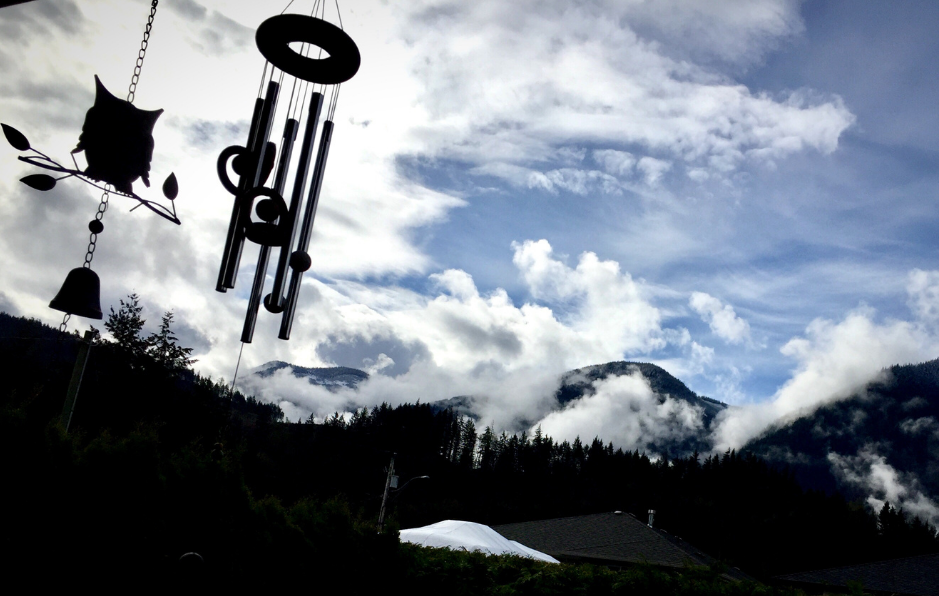
Buy Wind Chimes
If a water feature isn’t for you, wind chimes are another great addition to a garden that let out their own sound that could help drown out sounds from the street. There are many different designs of wind chimes, and you can hang them almost anywhere!
Use Speakers
White noise is very effective at drowning out unwanted noise, but a small white noise machine you have by your bedside table or an app on your phone are not going to do the trick at blocking out sounds from the street. Instead, you can use outdoor speakers to play white noise from.
Using speakers is a great way to achieve the benefits of white noise, without really adding any clutter or extra expenses to your garden. And, if you don’t like the sound of white noise, you could play sounds such as running water, bird song, or even your favorite music artists! Just make sure you don’t play it too loud, otherwise you’ll annoy the neighbors!
Best Case Solutions And Possible Problems
You’re probably thinking: Okay, so these are my options. But what is really the best solution to my noise problem?
Well, if we could advise you with no influences such as cost or other external setbacks, we would advise you to pick the sound barrier that fitted into our five top factors for a barrier: height, thickness, placement, coverage and porosity.
In the best case, you would choose a barrier that was very tall and very thick, and made from strong and sturdy materials. There would be no gaps, cracks or holes in the barrier, and it would deflect sound before it even made it to your yard. It would also cover the perimeter of your backyard, and be as close as possible to the traffic.
For example, a ten foot brick wall that surrounded all sides of your yard would be perfect. However, this is not exactly practical. As we will lay out below, there can be some potential problems when it comes to soundproofing your yard from traffic noise.
One of the biggest issues is the cost. A tall brick or concrete wall is a great idea, until you see its price tag! Many people cannot afford these expensive materials, and certainly not in the quantities that would really be needed for excellent sound reduction. Therefore, many have to compromise with smaller walls or walls made of less dense, less thick or less sound absorbing materials.
Another issue that many people come across is getting the permission to actually build a wall. To build a barrier that will protect your backyard from traffic noise, you will need to check local regulations and get the green light from the local authorities. This includes permits and planning permission, which you may need to pay for. You should also talk to your neighbors and get written permission from them — you don’t want to construct your barrier and then find your neighbors complain about it!
One inevitable downside to any sound barrier is the maintenance and upkeep that you will have to keep on top of. You will constantly need to check for gaps and cracks in any barrier and seal any that you find. You may need to treat the barrier with a special chemical if it is made of wood and you may also find fences out of wood rot and need replacing after a while. If you’re using plants to help absorb sound, they will need to be looked after and cut back depending on the season.
That being said, a sound barrier is still an excellent choice for blocking out the noise of traffic and, while there are slight negatives, they do not outweigh the benefits. Make sure you go for one that works for you space, but still meets basic soundproofing requirements.
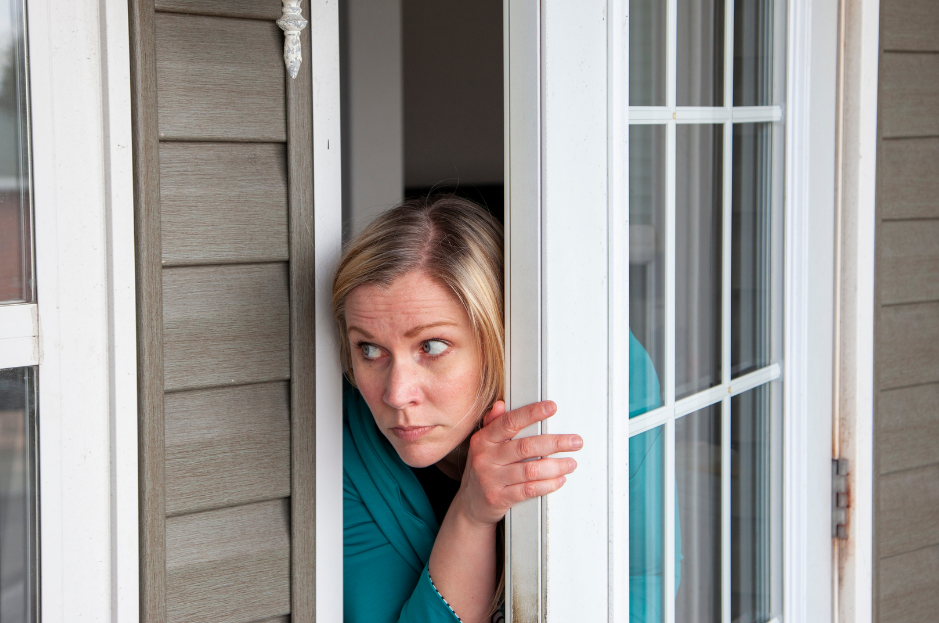
How To Reduce Traffic Noise In My Backyard – FAQs
How expensive is it to soundproof my backyard?
Soundproofing your backyard only has to be as expensive as you want it to be, but the more money you spend, the better the results will be. If you don’t want to break the bank, using cheaper options such as adjusting the landscaping of your garden or buying back yard speakers can be great methods at reducing the amount of noise heard.
However, if you are looking to spend a little more, constructing a wall around your perimeter can really help to deflect noise. Of course, there are many different materials for you to choose from and some are cheaper than others. The price will also depend on how large your backyard is and how loud the noise is that you’re trying to dampen.
Unfortunately, it is difficult to put a price on the exact cost of soundproofing your back yard, but you should be able to get price quotes from builders and contractors before you move ahead with any actual construction.
How do I stop traffic noise coming into my home?
If you can hear traffic noise coming through your windows it can be really disruptive, particularly when you are trying to sleep at night. There are a few methods you can use to help soundproof inside your home.
Install Thick Blinds Or Curtains
Installing thick blinds and curtains adds an extra layer of soundproofing to windows, which are often a culprit for leaking sound. If the curtains are thick enough, they will absorb sound instead of letting it pass through the window and into the room. What’s more, they’re usually blackout curtains and also help to block out any excess light, making them great for bedrooms.
Make sure you get soundproof curtains that are wider and longer than the window you are trying to cover, so you don’t run the risk of buying some that are too small and don’t do the job properly.
If you decide to use blinds instead of curtains, we recommend you go for soft blinds. While metal or wooden blinds can be thick, not only can the hard materials bang against each other if there is a draft coming through, but they could also potentially reverberate any street noise and cause echoes.
Use Weatherstripping Tape
While installing thick blinds or curtains are a good option, if you have large gaps in your windows, they’re not going to do much. Windows are notoriously difficult to soundproof and you may hear noise or feel air coming through your window.
Windows are installed with a weatherstripping seal that helps to prevent air from getting into a room when the window is closed. However, weatherstripping is prone to decay and will need to be replaced every so often.
You can replace weatherstripping materials yourself by using weatherstripping tape. All you need to do is thoroughly peel off any existing seal and replace the tape. You should find noise is reduced once the new tape is in place and your windows are shut.
Use Acoustic Caulk
Using a sealant like acoustic caulk on top of weatherstripping tape around windows can further help to prevent noise getting into your home, by sealing up any gaps and cracks there may be. Some caulk is even paintable after it has dried.
Use White Noise
White noise can be a fantastic way to help drown out traffic noise inside your home, as well as out. You can use a white noise machine, or you can download a white noise app on your phone.
If you don’t want to download an app or use a white noise machine, there are a few appliances in your home that generate their own white noise. These include air conditioning and fans. However, it may cost you in the long run to have these appliances running all the time.
Use Earplugs Or Noise Cancelling Headphones
Ear plugs and noise cancelling headphones are a temporary fix, but they are super cheap and an option that can really help, especially if the traffic noise is keeping you up at night. You can use noise cancelling ear plugs as you are falling asleep to help reduce any noise that is heard.
Summary
Traffic noise can be really frustrating when you’re trying to enjoy time in your garden, but there are ways to help deflect or absorb the sound so you aren’t disturbed. While some options for deflecting sound are expensive, such as building a brick wall, there are also cheaper, more accessible options such as erecting a wooden fence or even using vegetation from your back yard to protect it from noise. So, no matter what sounds you are hearing, we hope you have found a solution to your problem and you should be able to get back to spending time in your yard in peace.




